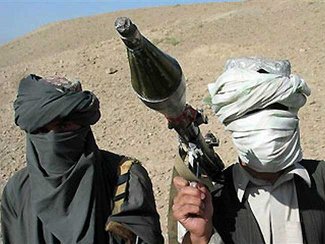KANDAHAR, Afghanistan The message, very often, is sent with bloodshed.There was the suicide bombing last week on a fortified Kandahar guesthouse shared by Western contracting companies, killing four Afghans and injuring several Americans. There was the Afghan engineer, shot dead in March as he helped inspect a school not far from the Pakistan border. Or the Afghan woman, an employee for a U.S.-based consulting firm, shot by motorbike-riding gunmen as she returned home from work in this southern city.
As the United States presses ahead with an Afghan counterinsurgency strategy that depends on speeding up development of one of the world’s poorest countries, the U.S. contractors, construction companies and aid organizations needed to rebuild Afghanistan have faced a surge in attacks that puts the plan in jeopardy.
Overall figures for contractor attacks remain elusive, since the employees come from dozens of nations and work for hundreds of different organizations.But the death toll has jumped precipitously in the months since President Barack Obama launched a massive troop surge last December.
Of the 289 civilians working for U.S. contractors killed between the start of the Afghanistan war in late 2001 and the end of last year, 100 died in just the last six months of 2009, according to a report by the Congressional Research Service.To a degree, those killings have mirrored an increase in U.S. service member deaths, which roughly doubled in the first three months of 2010 compared to the same period in 2009.
Many of the recent attacks against civilian contractors have been around Kandahar, the one-time Taliban capital where the U.S. is poised to launch a major operation in the coming weeks, but the rash of violence has spiked across Afghanistan.”The insurgents are trying to say ‘You can’t do it,'” Gen. Stanley McChrystal said in a speech last week in Paris, shortly after two bombings shook Kandahar. “I think we’ll see that for months as they make an effort to stop progress. But I don’t think that they’ll be successful.”
In some ways, though, they already have been successful.Although contractors say they are not leaving the country, the attacks have forced them to retreat even further behind blast walls and heavily armed security perimeters. The security drives up costs, makes it more difficult to interact with regular Afghans and slows reconstruction projects.
The attacks have forced many contractors, aid groups and Afghan officials to retreat even further behind blast walls and heavily armed security perimeters. The security drives up costs, makes it more difficult to interact with regular Afghans and slows reconstruction projects.
“We have become the targets of the Taliban,” said Azizullah, the owner of a construction company that builds bridges and irrigation projects in the southern provinces of Kandahar and Helmand, strongholds of the militant Muslim fighters. “If we travel, they try to kidnap us and hold us for huge ransoms. If we don’t pay, they kill us,” said Azizullah, who like many Afghans has only one name.
His workers now travel in U.S. military convoys whenever possible, he said, to give them additional protection.That doesn’t surprise Gulali, a tribal elder from Kandahar province.”Of course the Taliban are against any of these people working for the Afghan government or the Americans or other foreigners,” said the elder, who also uses only one name.
He believes many of the recent attacks are by militants simply looking for softer targets. While nearly all foreign companies in Afghanistan now work out of guarded compounds, they do not have the massive fortifications and overwhelming firepower found at nearly any American military installation.The Taliban “want to use the easiest option,” he said.But the attacks are challenging a key part of America’s aims in Afghanistan.
Washington’s counterinsurgency plans call for aggressive development to build up everything from Afghanistan’s roads to its sewer systems to its irrigation networks. Much of the actual work is paid for by USAID, the government’s main international aid agency, then contracted through corporations that often subcontract the actual the work to smaller companies. On the ground, many employees are Afghans overseen by small groups of Western administrators.
The attacks “are not about armed confrontation. They are about subversion of the government,” said Terrence K. Kelly, a senior researcher at the Washington-based RAND Corporation who has studied how rebuilding efforts work in war zones. America’s strategy counts on development work to increase the legitimacy and reach of the Karzai government. With these attacks the Taliban can “turn off the delivery of services – which makes the government look bad,” he said.USAID insists it will not scale back its work in Afghanistan because of the attacks, according to Rebecca Black, the agency’s deputy mission director for Afghanistan.
Contractors insist they are also staying.The Louis Berger Group/Black & Veatch, a joint venture building major infrastructure projects across the country, was among the companies based in the Kandahar guest house attacked last week.In a statement, the joint venture said they were “currently conducting a comprehensive review of the recent events in Kandahar to assess what changes, if any, are required to continue our work.”(AP)
 A series of air strikes launched by the North Atlantic Treaty Organization (NATO) has killed 14 Taliban fighters in Afghanistan. NATO attack was launched along with Afghan soldiers As quoted by the Associated Press, Monday, September 13, 2010, attacks came as Nato patrols across the river in the province of Uruzgan.NATO forces then requested air support after receiving small arms fire. NATO to ensure that no civilian casualties.
A series of air strikes launched by the North Atlantic Treaty Organization (NATO) has killed 14 Taliban fighters in Afghanistan. NATO attack was launched along with Afghan soldiers As quoted by the Associated Press, Monday, September 13, 2010, attacks came as Nato patrols across the river in the province of Uruzgan.NATO forces then requested air support after receiving small arms fire. NATO to ensure that no civilian casualties.


